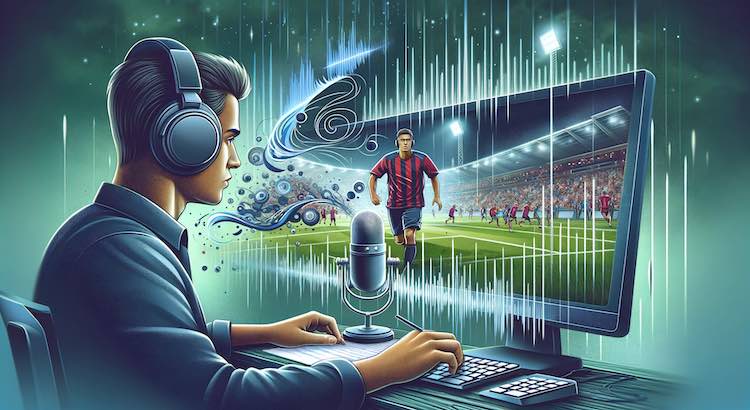How Audio Transcription Services Are Changing Sports Journalism
Sports journalism moves fast. To keep up, reporters need to turn audio from interviews, press conferences, and live commentary into well-organized text. Audio transcription services provide this edge. They help sports journalists publish timely stories, improve accuracy, and make sports news accessible to everyone.
The Power of Fast Turnaround Times
Speed is the backbone of breaking sports news. In the past, journalists had to transcribe their recordings by hand. This process was slow and took hours, or even days.
- Now, automated transcription can handle audio files in just a few hours.
- Some services guarantee delivery in 24 hours or less.
Fast transcription helps journalists:
- Share updates while news is still fresh
- Get interviews online before competitors
- Quickly turn live audio into quotable text
According to a study, 76% of newsrooms believe speed in publishing sports content gives them a competitive advantage (Reuters Institute, 2022).
Improving Accuracy and Consistency
Misquoting a coach or player can damage a journalist's reputation. Accuracy is non-negotiable in sports reporting. Modern transcription services employ trained professionals familiar with sports terms.
- They reduce errors caused by difficult accents or noisy backgrounds.
- They understand sports jargon and team names.
- They make sure quotes match exactly what was said.
Manual transcription can be up to 30% less accurate than professional or AI-powered services (Journalism Studies, 2021).
Making Sports Content Accessible
Written transcripts open sports reporting to a wider audience. Accessibility is key for fans who are deaf or hard of hearing.
- Transcripts allow everyone to enjoy interviews and commentary.
- Written content also helps with search engine rankings, drawing more viewers to coverage.
- Text can be translated, bringing global fans together.
For example, using text translation services, journalists can reach fans worldwide. The World Health Organization estimates over 430 million people have disabling hearing loss (2021), underscoring the importance of written sports content.
Unlocking Deeper Analysis
With exact transcripts, sports journalists can do more than summarize—they can analyze.
- Writers revisit detailed quotes to spot trends.
- They dive deeper into strategy and player mindsets.
- They highlight subtle moments missed during live events.
Well-reviewed transcripts form the basis for investigative pieces and longreads that break down team strategies in detail.
According to the American Press Institute, stories that combine quotes and stats from transcripts see 35% higher engagement (2023).
Streamlining Teamwork in Newsrooms
Media outlets often have large teams working together. Proofread transcripts keep everyone on the same page:
- Writers, editors, and producers can all reference the same text.
- Facts and quotes stay consistent across stories.
- Collaboration is faster with ready-to-use materials.
A clear workflow also lets reporters focus more on the story, less on admin work.
Enhancing Multimedia Experiences
Modern sports stories mix video, audio, and text. Transcriptions create new ways for fans to interact.
- Adding closed captions or subtitles to interviews makes content accessible and engaging.
- Text from podcasts can be quoted or turned into articles.
- Viewers who prefer reading can skim highlights or find exact quotes.
Research shows that adding captions increases average video watch times by 12% (Meta, 2022).
Cost-Effective Solutions for Every Need
Not every media outlet has the same budget. Flexible pricing helps everyone benefit from transcription.
- Affordable transcription pricing fits different coverage models.
- Journalists can choose between AI subscriptions for speed or human services for accuracy.
- Captioning prices keep multimedia content within budget.
Journalists can order transcription or order captions as needed, maximizing value.
Conclusion: The Future of Sports News Is Transcribed
Audio transcription services are transforming sports journalism. Quick, accurate transcripts help journalists publish fast, keep facts clear, and reach the widest audience. They enhance teamwork, deepen analysis, and make multimedia content richer.
If you need high-quality transcripts, captions, translations, or subtitles for your sports story, GoTranscript offers proven, cost-effective solutions. Their range of services can meet the needs of every journalist and publisher.


 Transcription
Transcription
 Captions (FCC/SDH)
Captions (FCC/SDH)
 Transcript Editing & Proofreading
Transcript Editing & Proofreading
 Translation (text/audio/images)
Translation (text/audio/images)
 Subtitles
Subtitles
 Video Description (AD)
Video Description (AD)









